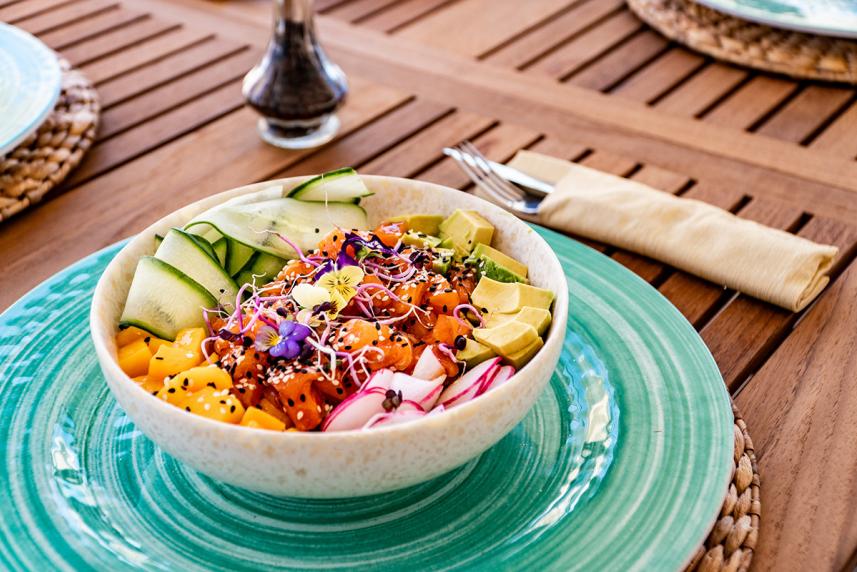6 healthy eating tips to boost your immune system
Maintain wellness all year round with nutrient-rich foods that boost your immune defenses and keep you healthy.

Colds and flu can strike any time of year. That’s why it’s important to remember that your diet can play a big role in how well your immune system works. A strong immune system can help you fight off respiratory viruses and stay healthy. While washing your hands often and getting your flu shot are crucial steps, what you eat can also make a big difference.
Eating a balanced diet rich in vitamins and minerals is key to supporting your immune system. Foods like fruits, vegetables, lean proteins, and whole grains provide the nutrients your body needs to stay strong. By making small changes to your daily meals, you can boost your immune system and reduce your risk of getting sick.
A healthy diet isn’t just about what you eat; it’s also about how you prepare and consume your food. Simple practices like staying hydrated, eating regular meals, and choosing whole foods over processed ones can significantly improve your overall health. These tips can help you stay well and enjoy your days to the fullest.
Take advantage of your HMSA Well-Being Lifestyle Resources. Hawaii–based health coaches are available to help you create a plan and offer support as you work toward your goals. Learn more about Health Coaches and other Lifestyle Resources here.
Tip #1: Pick plant foods
Pack your meals and snacks with fruits and vegetables full of phytochemicals. Phytochemicals are natural substances in plants that help protect them and can also help you stay healthy. Dark, leafy greens and red or yellow vegetables are great sources of these immune-boosting compounds. These compounds help your immune system work better and can lower the risk of infections and inflammation. Other good sources of phytochemicals include beans, legumes, whole grains, nuts, and seeds.
According to Stanford Health, there isn’t a daily or weekly serving recommendation for phytochemicals. To get all of the wonderful benefits phytochemicals have to offer, make sure to include a variety of them in your daily meals and snacks.
Tip #2: Stock up on flavorful healers
Improve your diet by including more foods that may boost immunity, including lemon, garlic, yogurt, turmeric, oregano, green tea, ginger, squash, and chicken soup. These foods aren’t just full of flavor. They also contain healing compounds and medicinal properties.
Spices like garlic, turmeric, ginger, and oregano are full of anti-inflammatory and antioxidant properties, which may support heart health, boost immunity, and aid in digestion. Yogurt with probiotics offers similar benefits, in addition to potentially aiding in bone health and weight management.
To get the full benefits of these immune boosting and anti-inflammatory foods, they should be incorporated into your diet daily. Try hot water with lemon, or ginger tea.
Tip #3: Stay hydrated
Drinking plenty of water will help strengthen your immune system, boost your metabolism, flush toxins from your body, and keep your skin from drying out. You can also eat fruits and vegetables that help hydrate, such as lettuce, cauliflower, celery, melon, and berries.
How much fluid do you need each day? The National Academy of Medicine says a good rule of thumb to follow is to take one-third of your body weight and drink that number of ounces in fluids. For a 150-pound adult, that comes out to around 6 cups.
As you get older, you might not feel as thirsty, which can make it harder to know when you need water. To stay hydrated, keep water nearby, and try to have a glass with all meals. It’s also a good idea to talk to your doctor about how much water you should drink.
Recommended reading: 5 surprisingly simple ways to prevent the flu
Tip #4: Keep your blood sugar stable
When blood sugar gets too low, the body can go into fight-or-flight mode, increasing adrenaline and stress hormones. That can make you more susceptible to infection, according to registered dietitian Misti Koltun Gueron, MS, RD, CDCES.
Her advice to help keep blood sugar steady works year-round, but especially during the height of cold-and-flu season: Limit foods that will quickly increase — and then decrease — your blood sugar, such as juices, sodas, candy, and heavily processed snacks.

Use Find a Doctor on hmsa.com to search for a participating provider near you today.
Tip #5: Eat your vitamins
Many people take supplements like zinc, iron, vitamin C, and echinacea to boost their immune system. But unless you have a vitamin deficiency, you might not need them, says Gueron. It’s best to get your vitamins from food first.
Vegetables like spinach and broccoli have lots of iron. Eggs and dairy products are full of zinc. Citrus fruits, like oranges and lemons, are packed with vitamin C. You can also find echinacea in some teas and juices.
If you’re concerned about getting enough of these vitamins from the foods you eat, ask your doctor if supplements would be right for you.
Tip #6: Limit alcohol
Heavy drinking can suppress your immune system and make you more prone to infection. Drinking alcohol also dehydrates you.
Sources:
What are phytochemicals: UCLA Health
Phytochemical serving size: Stanford Health
How to stay hydrated: National Council on Aging
Understanding alcohol and your immune system: Alcohol and Drug Foundation
H3832_8750_8PYEQ670_25_C
© 2025, Linkwell Health, Inc. All content owned or licensed by Linkwell Health, Inc. All rights reserved.
